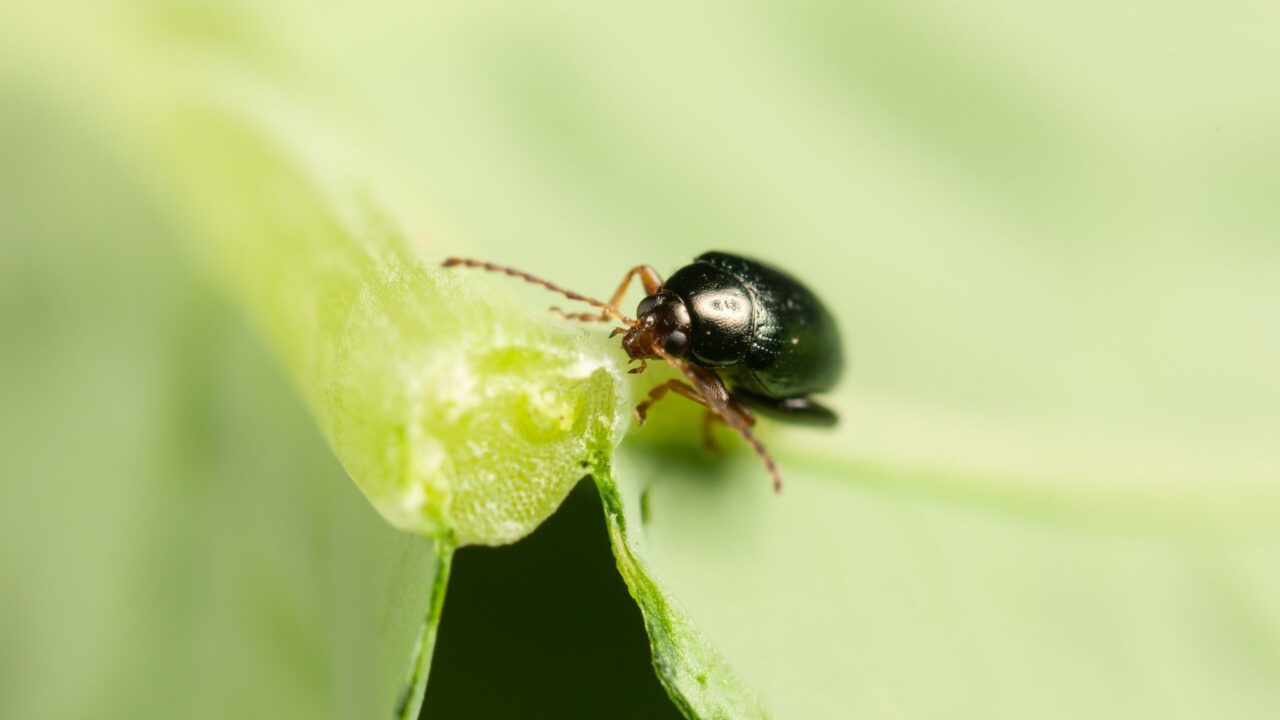The Agriculture and Horticulture Board (AHDB) has announced a new collaboration between some of the top applied research organisations in England, where cabbage stem flea beetle (CSFB) is most problematic.
CSFB Research+ will be worked on together by ADAS, Niab, and Rothamsted Research.
CSFB Research+ represents AHDB’s largest single investment in CSFB research, with a total project value nudging £750,000.
A third of this investment is from cash and in-kind contributions from an extensive network of project partners.
Cabbage stem flea beetle research
The project will evaluate the field performance of novel control products, improve guidance on cultural control measures, fine-tune understanding of CSFB development, generate data on natural enemies, and prime innovation in CSFB management.
Running for nearly five years, the work builds on a long-term series of AHDB- and Department for Environment, Food and Rural Affairs-funded projects that has dramatically improved understanding of the pest’s life cycle, crop risk factors and effective cultural control strategies.
AHDB lead crop protection scientist, Sacha White said: “Faced with a lack of chemistry and insecticide resistance challenges, confidence and commitment to OSR [oilseed rape} has waned, with the UK shifting from a net exporter to a net importer in recent years.
“This new research partnership project brings together passionate and knowledgeable people from across the industry – spanning farmer cooperatives, input specialists, grain merchants, food producers and applied researchers – to co-design activity that puts CSFB control firmly back into the hands of farmers.”
Featuring numerous field trials and assessments, the research will:
- Examine the field performance of novel CSFB control products, such as novel insecticides/seed treatments, botanical biopesticides, entomopathogenic nematodes, and synergists;
- Extend the availability of cultural control methods, including the use of OSR stubble cultivation to disrupt soil-dwelling CSFB pupae and brassicas in cover crops to lure beetles away from OSR cash crops;
- Improve understanding of CSFB traits to target cultural, biological, and chemical control, including studying how environmental conditions influence CSFB development and migration;
- Study the two main parasitoids of CSFB including how to encourage them;
- Work in partnership to co-design activities that target research and knowledge exchange, create spaces for innovation and maximise value to levy payers.
A wide range of communication channels will be used to promote results to levy payers throughout the project.

